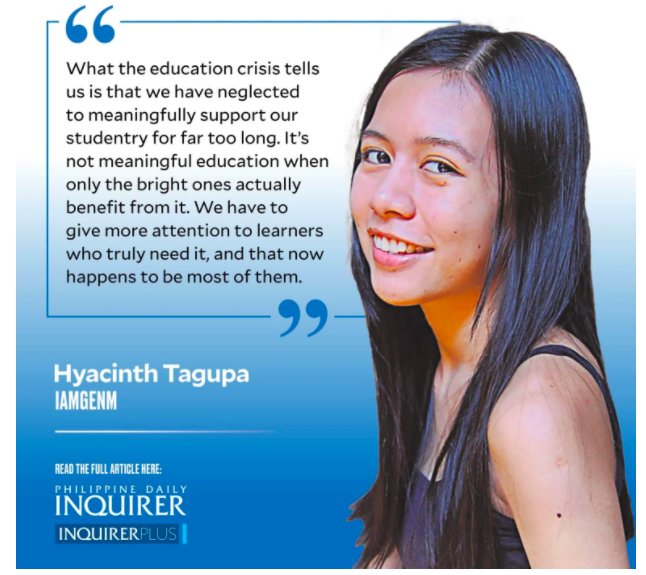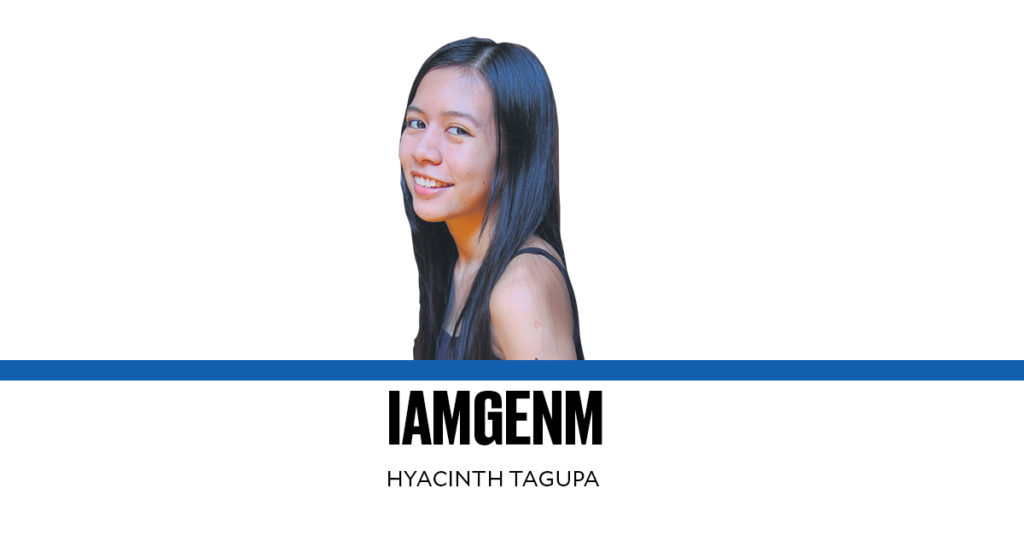
There are times, such as today, when it feels like education in the Philippines is a matter of luck.
Today, I’m perusing the data that led the advocacy group Philippine Business for Education (PBEd) to declare that our country’s education system is in crisis.
Just a few of their uncovered numbers: Among junior high students, only a shocking 1 percent are proficient in math, 3 percent in English, and 1 percent in science. Among fifth graders, only 2 percent met standards in writing, 10 percent in reading, and 17 percent in math. And, on top of these, 1.1 million of our students did not attend school this year.
When this many learners are falling way behind—the 1.1 million who had to take a gap year, plus the millions more who are not learning enough in school—we can no longer blame the learners themselves. It’s not just one or two “lazy” students in class. Majority of our students are underachieving because they are caught in a structure that does not adequately support them.
The academe is just one facet of this, an area where even the most basic requisites like books, computers, and qualified, motivated teachers run short. Outside of school, our young learners are hindered by factors like poverty, malnutrition, lack of learning tools (e.g. accessible internet), and lack of social encouragement.
In such a challenging context, you’d have to be lucky to stumble into the rare wellsprings of support where your household accommodates your learning needs, and your teachers are competent and energized in mentoring you.
The catch is, it’s usually the few already-thriving students who get this kind of reinforcement. Our education system celebrates achievers and makes them the poster children of “quality education” while leaving the rest to mediocre learning.
As a child, I was one of the “lucky” ones who were able to show some sort of academic aptitude early on—specifically, an inclination for reading and writing. (That wasn’t much to my credit because at that age, I was largely a product of my circumstance: My father had a stable job, my mother tutored me, and our home was filled with books.)
In the public school system, advantage begets advantage. Handpicked for interschool competitions, a few students and I were specially coached in skills where we showed promise. We trained during and after class hours, had special access to the computer room, and were sent to additional workshops and seminars. The system poured more energy on us “star students” than it did on most others.
While I’m endlessly grateful for these gifts, it’s time to recognize that the kind of support endowed on achievers should not just be a privilege but a common right among all students.
The reality is that underperforming learners—those slow in progress, struggling with attendance, unable to focus, have low self-esteem, etc.—are often left to strive on their own. In the course of the school year, they barely get any personalized mentoring (if at all) or access to valuable academic tools. At best, they get pity grades to allow them to move up to the next grade level—though in the long run, this is detrimental to the individual learner and the student body as a whole.
What the education crisis tells us is that we have neglected to meaningfully support our studentry for far too long. It’s not meaningful education when only the bright ones actually benefit from it. We have to give more attention to learners who truly need it, and that now happens to be most of them.
How might school boards utilize the Special Education Fund to make learning tools more accessible to struggling students? What strategies can educators and parents employ to motivate their students and personalize their learning? What can barangays and community groups do to aid at-risk learners, drive up enrollment, and keep learners in school?
These are some questions that could help us rethink how we bolster our studentry’s performance. Our learners shouldn’t need to be “lucky” in order to get decent education. We should foster a setting where each one of them is able to fully enjoy this fundamental human right.
—————-
hyacinthjt@gmail.com


